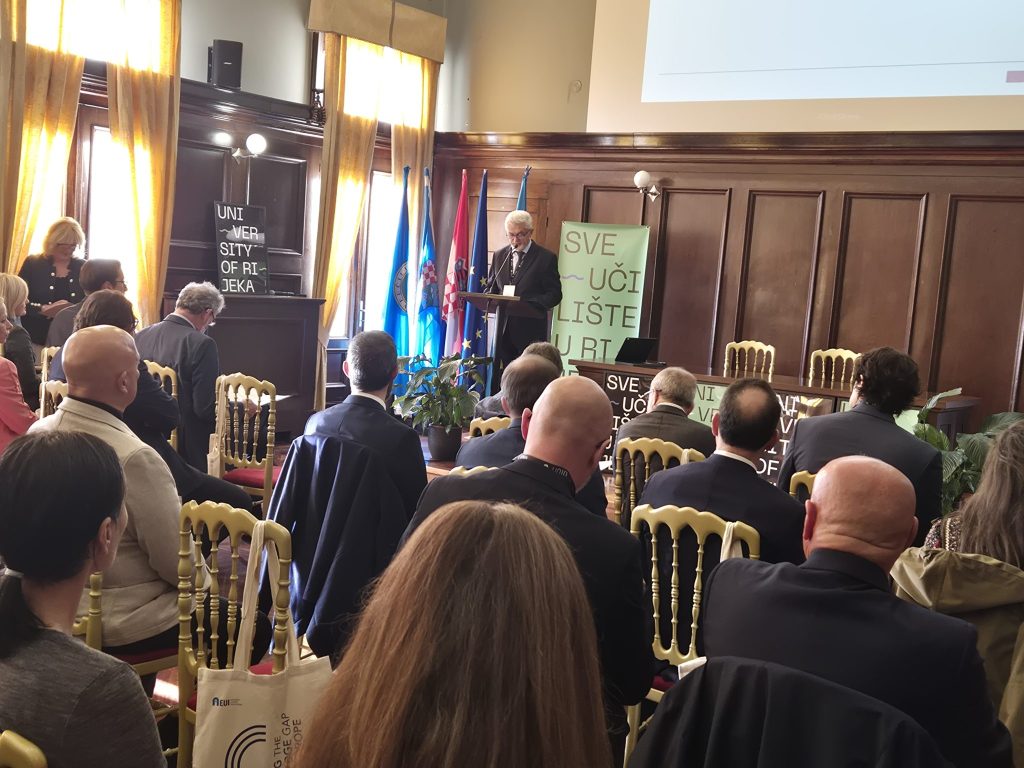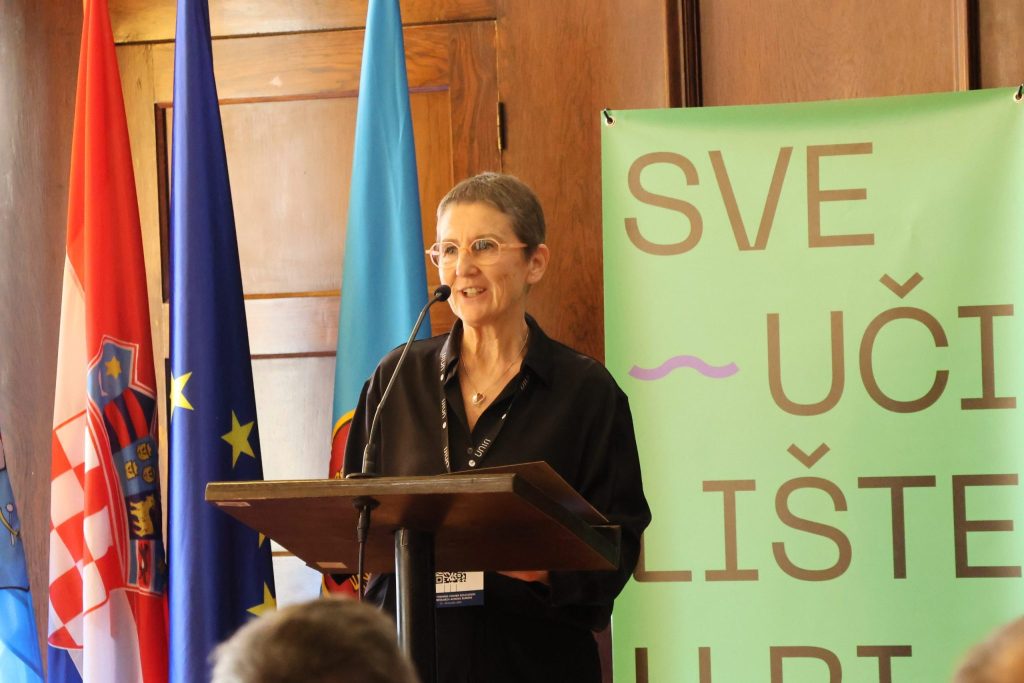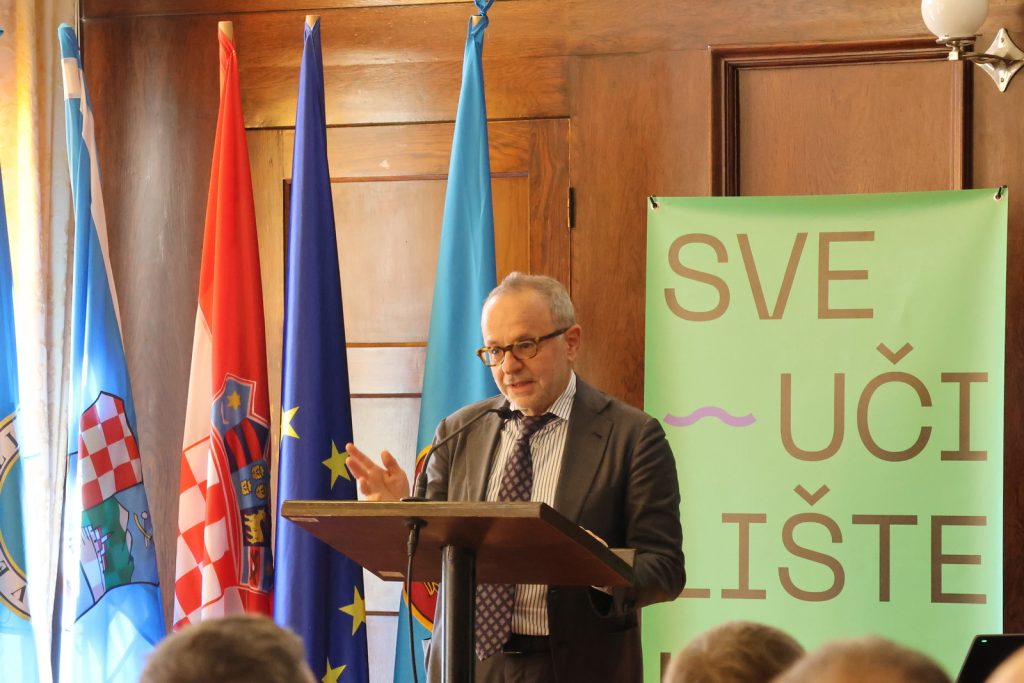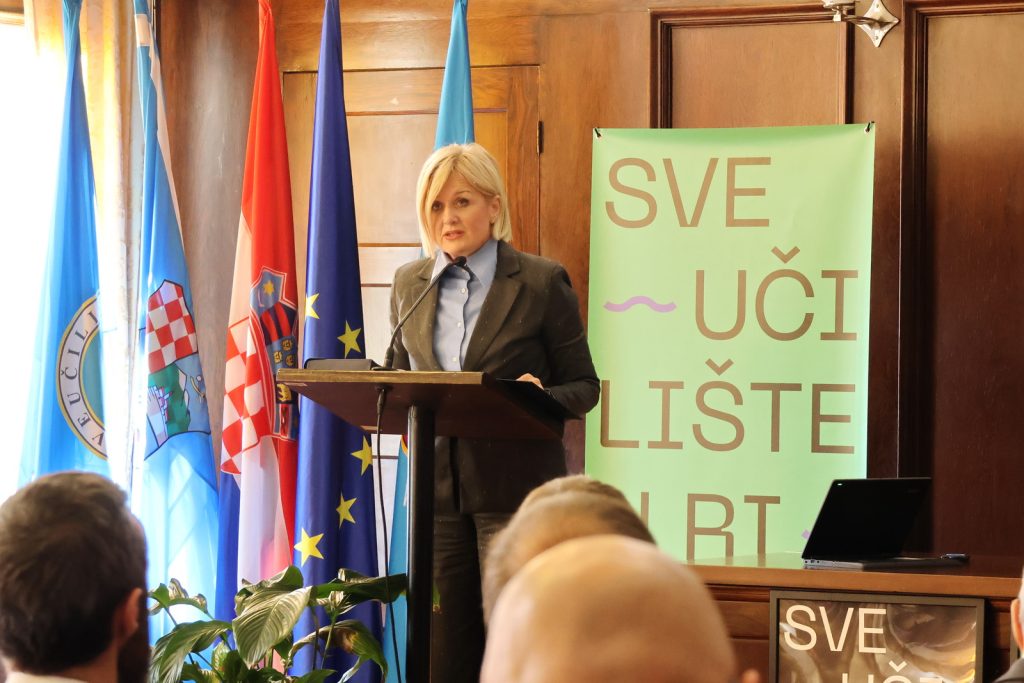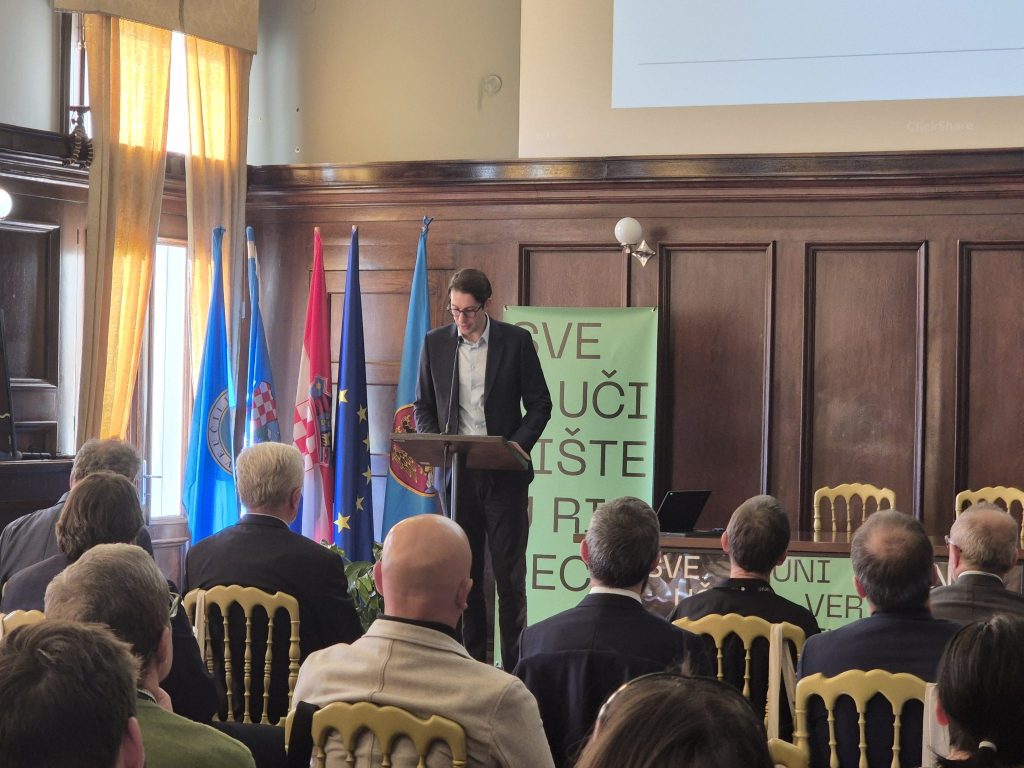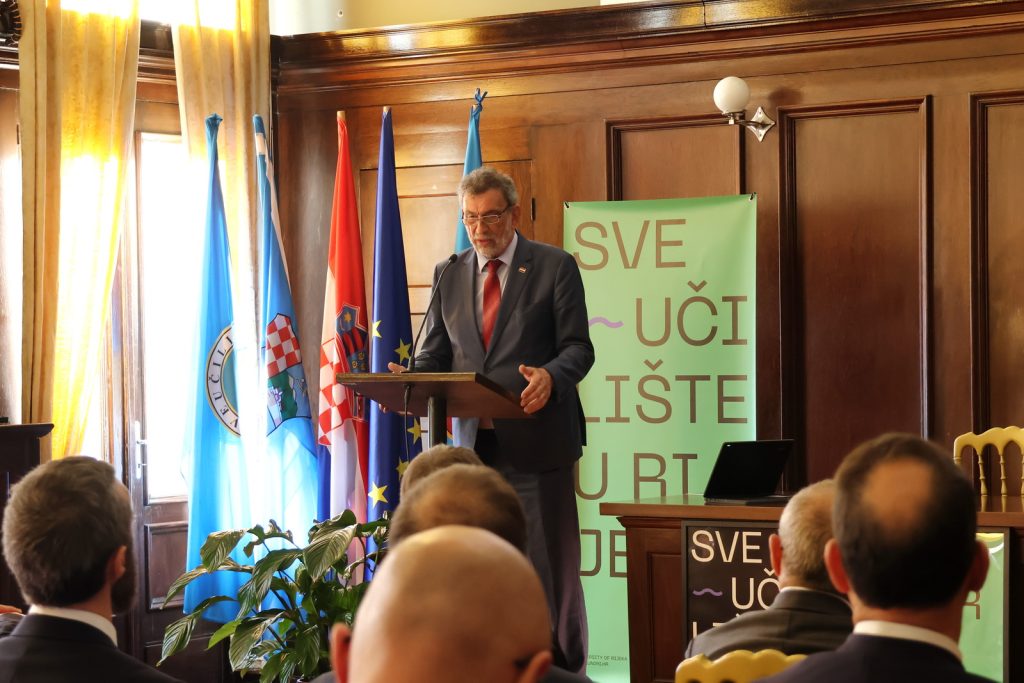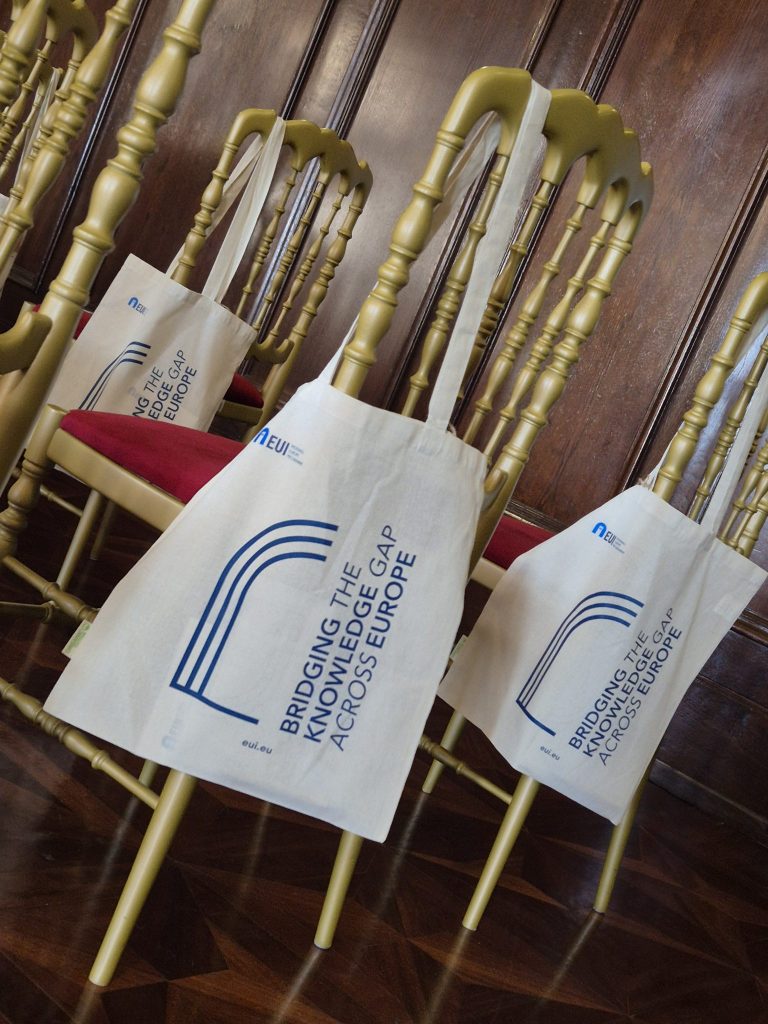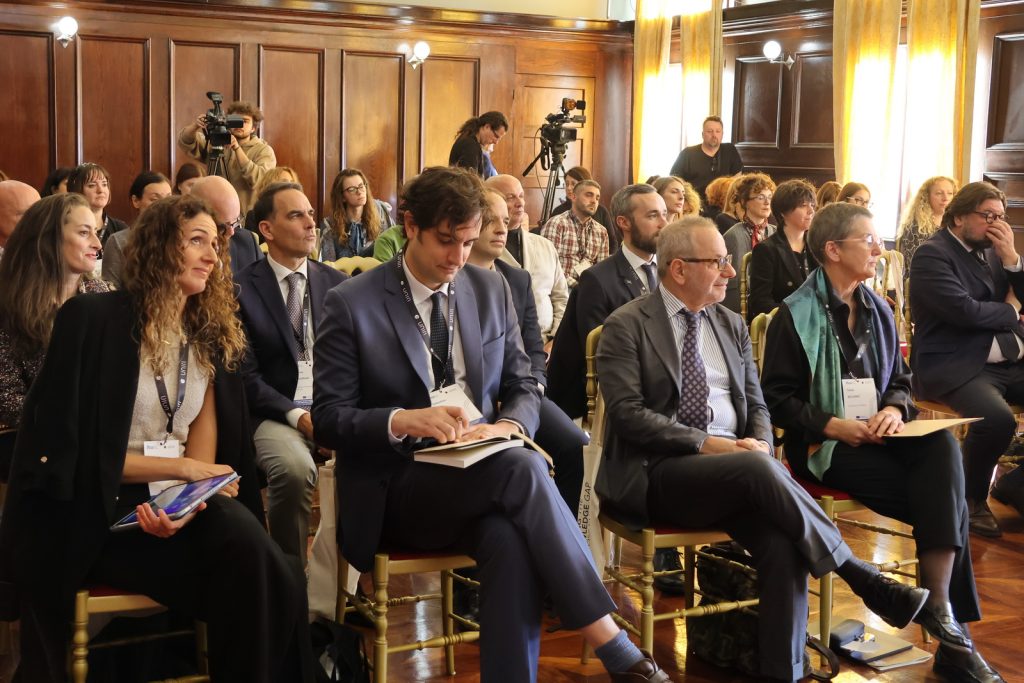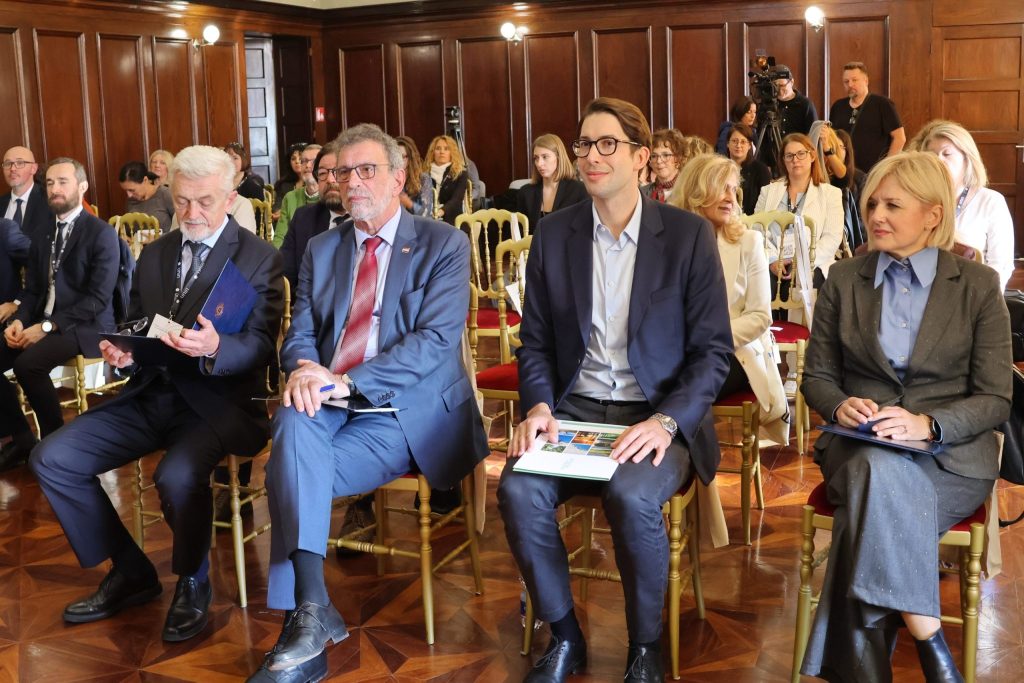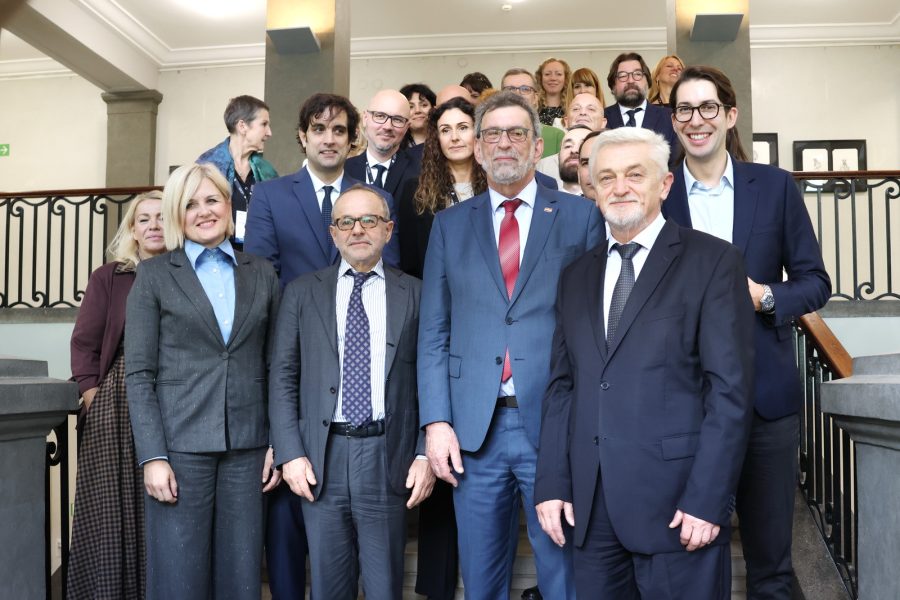To mark Croatia’s recent accession to the European University Institute (EUI), an international center for doctoral and postdoctoral studies and research with headquarters in Florence, the University of Rijeka is hosting a two-day conference entitled Strengthening higher education and research across Europe, organized by the Center for Advanced Studies of Southeast Europe in cooperation with the European University Institute. The opening ceremony was held on October 27, 2025, at the University of Rijeka Rectorate. On behalf of the organizers, the participants were welcomed by:
- Prof. Davor Vašiček, Ph.D., Interim Rector of the University of Rijeka,
- Assoc. Prof. Sanja Bojanić, Ph.D., Head of the Center for Advanced Studies of Southeast Europe,
- H. E. Armando Barucco, Secretary General of the European University Institute.
Armando Barucco, former Italian Ambassador to Morocco and Mauritania, took up the position of EUI Secretary General in late June this year, and he is particularly pleased that the first months of his mandate were marked by a major step: ”The European University Institute began its journey back in 1972, when it was founded by six member states of the then European Community. Four years later, it opened its doors to researchers. At that time, when Europe was still recovering from the Second World War, the idea was to restart the debate on a united Europe, and for this, culture, science, and knowledge were needed. To build a common European consciousness, we need European universities. This year, Croatia became the 24th member of the EUI, precisely in the year when we celebrate 50 years of the Institute’s activities. This should not be underestimated, especially in today’s times and in today’s Europe. Knowing Croatian history, having Croatia as another member is a great advantage, because Croatia has extensive knowledge of the process of democracy, reintegration, and the role of science in that process. This is a victory for all parties: Croatia, the Croatian academic community and Rijeka’s doctoral students, but also for the EUI.”
The opening ceremony was also attended by the Mayor of Rijeka, Prof. Iva Rinčić, Ph.D., who expressed her satisfaction that the conference is being held in Rijeka: ”I am extremely pleased that this conference is being held in Rijeka, the city of knowledge, innovation, and cooperation. As someone who comes from academic circles and now has the honor and responsibility of being the mayor, I can personally testify that the University of Rijeka and the City of Rijeka have had a long-standing cooperation based on a shared vision. Universities are undoubtedly key players in the development of any community, and as of today, cooperation with the European University Institute opens up new opportunities for new forms of cooperation and the development of new programs at the doctoral and postdoctoral levels.”
On behalf of Primorje-Gorski Kotar County, the conference participants were welcomed by Deputy Prefect Mr. Robert Matić, who emphasized that the County has always supported the University of Rijeka and encouraged cooperation with other European and global partners. ”The partnership with the European University Institute brings improved knowledge transfer and new opportunities for researchers and scientists. I congratulate the organizers and hope that your discussions will contribute to the further development of science and higher education in our county, the country, and beyond”, he concluded.
On behalf of the Prime Minister of the Republic of Croatia, Andrej Plenković, the Minister of Science, Education and Youth, Prof. Radovan Fuchs, Ph.D., addressed the audience: ”This two-day conference is a special event marking Croatia’s first steps in the European University Institute, and reflects its commitment to strengthening cooperation with the region, primarily through the Widening Europe program, designed to foster European higher education and research by building bridges between the EUI and national higher education institutions in target countries. By ratifying the Founding Convention of the Institute, the Republic of Croatia has become its youngest member state. As a result, Croatian scholars, students, and researchers will now be eligible to apply for EUI graduate and postgraduate programs in the fields of economics, history, law, and political and social sciences. I extend sincere thanks to the University of Rijeka for hosting this conference and congratulations on this great achievement and joining a community that promotes academic freedom and cooperation.”
After the welcome address, the conference participants had the opportunity to hear more about voter fatigue. Filip Kostelka, a political scientist based at the EUI focusing on political behavior, party systems, and democratization, held a plenary lecture Understanding Voter Fatigue: Why Citizen Empowerment Depresses Participation and What To Do About It? In recent decades, we have seen a significant increase in the frequency of elections, reflecting processes such as decentralization, European integration, the growing popularity of direct democracy, and various idiosyncratic institutional reforms. According to Kostelka, while these processes expand voter choice, existing literature shows that frequent elections reduce participation in elections and contribute to the global decline in voter turnout. However, the causal mechanisms remain unclear. His research seeks to uncover why voter fatigue appears and hypothesizes that frequent elections make electoral abstention more acceptable to citizens.
The conference in Rijeka brings together high-ranking representatives of the EUI and the University of Rijeka, members of the academic community, heads of universities that are members of the Rectors’ Forum of SE Europe and the Western Balkans, and representatives of partner universities from neighboring countries. While the first day of the conference was filled with presentations on the work of the European University Institute and the Widening Europe program, tomorrow’s program includes practical workshops on projects funded by the European Research Council (ERC) and public speaking outside academia. The program is available at the following link.
Thanks to the long-standing engagement of CAS-SEE, which stands out for its advanced research and postdoctoral research fellowship program, the University of Rijeka has been recognized as a prime example of a partner that will actively participate in shaping European research policy and provide young scientists with access to one of the most prestigious research networks in Europe. By jointly organizing the conference, the University of Rijeka, the Center for Advanced Studies, and the EUI confirm their commitment to building an open, inclusive, and innovative European academic space, in which international mobility, interdisciplinarity, and social responsibility are the foundation for the development of future generations of scientists.
